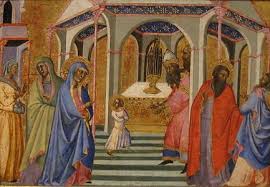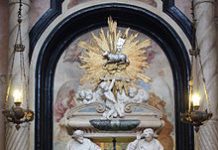As we celebrate the liturgical memorial of Our Lady of the Rosary, we would do well to reflect upon the Apostolic Letter by the Marian Pope St John Paul II on the Rosary, called Rosarium Virginis Mariae. Whilst it is impossible to go through it all it is important to appreciate some important points the Polish Pope highlighted in it.
Issued on October 16, 2002, which declared October 2002 to October 2003 as the “Year of the Rosary”, he tells us that the prayer of the Rosary embraces a Marian character amalgamated with a Christocentric core. The Rosary unites us more and more with Mary, our Heavenly Mother, to contemplate the face of Christ. Hence, Pope St John Paul II writes: The Rosary, though clearly Marian in character, is at heart a Christocentric prayer. In the sobriety of its elements, it has all the depth of the Gospel message in its entirety, of which it can be said to be a compendium.(2) It is an echo of the prayer of Mary, her perennial Magnificat for the work of the redemptive Incarnation which began in her virginal womb. With the Rosary, the Christian people sits at the school of Mary and is led to contemplate the beauty on the face of Christ and to experience the depths of his love. Through the Rosary the faithful receive abundant grace, as though from the very hands of the Mother of the Redeemer (no.1).
Moreover, the Rosary makes it possible for us to let Mary train us to love Christ, Her beloved Son and Our Brother and Redeemer, furthermore. Such a role greatly accentuates Christ’s unique mediation. The Rosary mystically transports us to Mary’s side as she is busy watching over the human growth of Christ in the home of Nazareth. This enables her to train us and to mold us with the same care, until Christ is “fully formed” in us (cf. Gal 4:19). This role of Mary, totally grounded in that of Christ and radically subordinated to it, “in no way obscures or diminishes the unique mediation of Christ, but rather shows its power” (no. 15).
The Rosary has the power to help us fix our gaze on Christ as Mary did. St John Paul II affirms us in this very important aspect of this powerful Marian prayer when he tells us: Mary lived with her eyes fixed on Christ, treasuring his every word: “She kept all these things, pondering them in her heart” (Lk2:19; cf. 2:51). The memories of Jesus, impressed upon her heart, were always with her, leading her to reflect on the various moments of her life at her Son’s side. In a way those memories were to be the ‘rosary’ which she recited uninterruptedly throughout her earthly life (no.11).
This Marian prayer helps us grow in our trust of Mary’s extraordinary intercession before the Father’s heavenly throne for our behalf. On this point Pope St John Paul II states: The Rosary is both meditation and supplication. Insistent prayer to the Mother of God is based on confidence that her maternal intercession can obtain all things from the heart of her Son. She is “all-powerful by grace”, to use the bold expression, which needs to be properly understood, of Blessed Bartolo Longo in his Supplication to Our Lady. This is a conviction which, beginning with the Gospel, has grown ever more firm in the experience of the Christian people. The supreme poet Dante expresses it marvellously in the lines sung by Saint Bernard: “Lady, thou art so great and so powerful, that whoever desires grace yet does not turn to thee, would have his desire fly without wings”. When in the Rosary we plead with Mary, the sanctuary of the Holy Spirit (cf. Lk 1:35), she intercedes for us before the Father who filled her with grace and before the Son born of her womb, praying with us and for us (no. 16).
The Rosary forms us to be ambassadors of the peace of Christ. In section 6 of the Rosarium Virginis Mariae, Pope St John Paul II recalls: A number of historical circumstances also make a revival of the Rosary quite timely. First of all, the need to implore from God the gift of peace. The Rosary has many times been proposed by my predecessors and myself as a prayer for peace. At the start of a millennium which began with the terrifying attacks of 11 September 2001, a millennium which witnesses every day in numerous parts of the world fresh scenes of bloodshed and violence, to rediscover the Rosary means to immerse oneself in contemplation of the mystery of Christ who “is our peace”, since he made “the two of us one, and broke down the dividing wall of hostility” (Eph 2:14). Consequently, one cannot recite the Rosary without feeling caught up in a clear commitment to advancing peace, especially in the land of Jesus, still so sorely afflicted and so close to the heart of every Christian.
Finally, in a world where the family is faced in constant attack by evil forces propelled by the evil one, let us resort back to the Rosary. Yes! The Rosary is the decisive factor for our families’ deliverance from evil and their consolidation in the Lord Jesus through Mary! Pope St John Paul II levels at us the subsequent invitation:
Many of the problems facing contemporary families, especially in economically developed societies, result from their increasing difficulty in communicating. Families seldom manage to come together, and the rare occasions when they do are often taken up with watching television. To return to the recitation of the family Rosary means filling daily life with very different images, images of the mystery of salvation: the image of the Redeemer, the image of his most Blessed Mother. The family that recites the Rosary together reproduces something of the atmosphere of the household of Nazareth: its members place Jesus at the centre, they share his joys and sorrows, they place their needs and their plans in his hands, they draw from him the hope and the strength to go on (no.41).
How beneficial for all of us it would be if, during this month of October, we take back into our hands this very actual, informative, formative and fruitful apostolic letter of Pope St John Paul II and let it encourage us to love, pray and be apostles of the Rosary everywhere the Holy Spirit leads us to go.
Our Lady of the Most Holy Rosary, pray for us!












